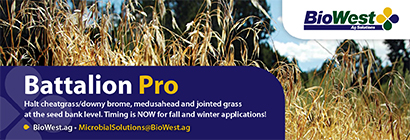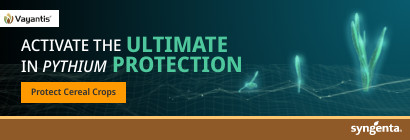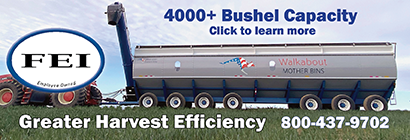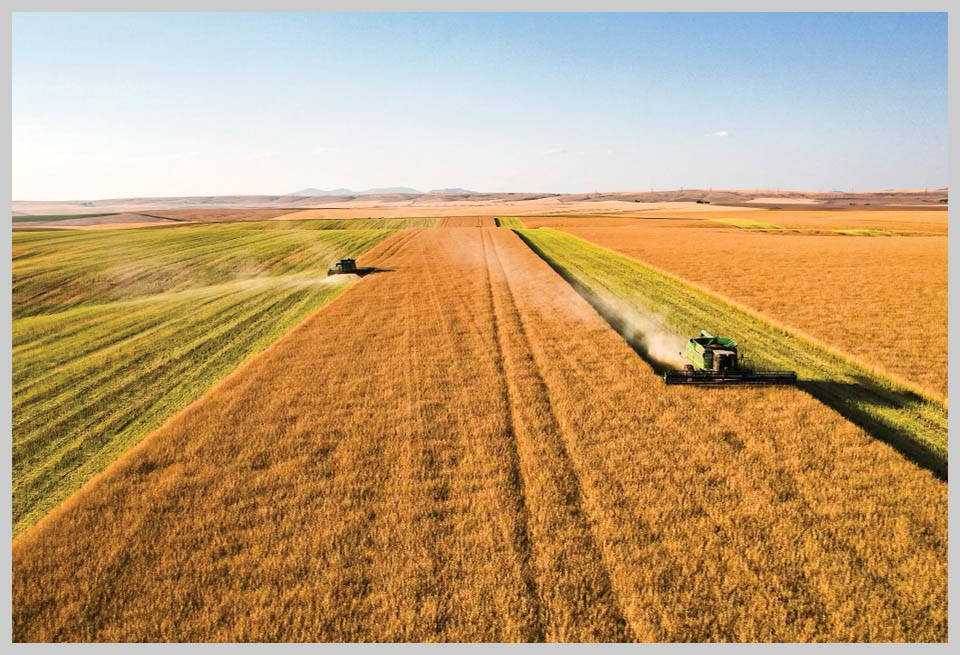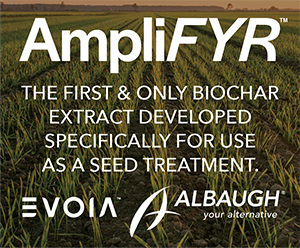Working for Washington wheat Who are the organizations supporting, advocating for the small grains industry?
2023April 2023
By Trista Crossley
Editor
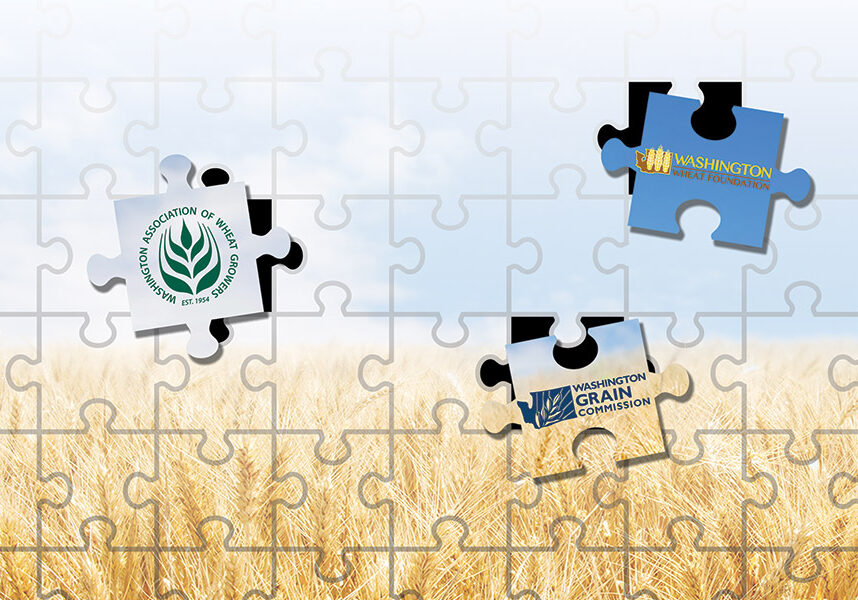
Washington wheat growers are represented by three organizations working together on behalf of the wheat and small grains industry in the Evergreen state. Although it might be confusing, each organization — the Washington Association of Wheat Growers, the Washington Grain Commission and the Washington Wheat Foundation — fulfills a specific role that works in tandem with the others.
Association
The Washington Association of Wheat Growers (WAWG) was formed in 1954 by growers to represent, protect and advance the social, economic and educational interests of wheat farmers, their families and the rural communities of Washington state. WAWG is a grassroots, membership-based organization that focuses on advocacy at both the state and national levels. WAWG represents wheat growers in 13 Eastern Washington counties: Adams, Asotin, Benton, Columbia, Douglas, Franklin, Garfield, Grant, Lincoln, Spokane, Walla Walla, Whitman and Yakima/Klickitat counties.
WAWG is led by an officer team (president, vice president, secretary/treasurer and past-president) and a state board of directors (one representative from each county), all of which are voluntary positions. The officers serve for one year before rotating to the next position. Grower-leaders are supported by paid office staff, including an executive director, an outreach coordinator, an administrative assistant and the staff at Wheat Life.
Many of the 13 counties represented by WAWG also have local groups that meet to discuss county issues. Those issues are taken by that county’s board representative to the monthly WAWG board meeting to be discussed.
“Our organization is guided by the issues and concerns brought up by members at the county level,” Michelle Hennings, WAWG executive director, explained. “We are truly a volunteer, grass-roots advocacy organization that relies on the input and participation of our growers to be successful. We work hard to be a nonpartisan source of information for policymakers and the public on issues that impact the Washington wheat industry.”
Much of WAWG’s time and efforts are spent on the legislative side of the industry, monitoring state and national legislation, testifying and talking to policymakers, and advocating for the needs of growers in areas such as transportation, infrastructure and natural resources. At the state level, WAWG works with a lobbyist, and at the national level, with the National Association of Wheat Growers.
Besides advocacy, WAWG also focuses on grower education by holding workshops and seminars for members throughout the year. WAWG works with U.S. Department of Agriculture agencies to relay grower concerns on crop insurance, safety net programs and the farm bill.
WAWG is supported by membership dues, Wheat Life advertising and the Washington Grain Commission. The office is in Ritzville, Wash., and can be reached at (509) 659-0610. More information about WAWG can be found at wawg.org.
“The three wheat organizations meet regularly to discuss industry issues and to make sure we are presenting a unified front,” Hennings said. “When we walk into a legislator’s office to discuss any issue, it doesn’t matter which organization we are from. All that legislator sees is ‘wheat.’”
Commission
One of the first things growers did after organizing WAWG was form the Washington Grain Commission (WGC) in 1958 through state legislation. The goal of the commission is to enhance the long-term profitability and competitiveness of Washington small grains and small grain producers by responsible allocation of assessment funds in research, marketing and education. Originally called the Washington Wheat Commission, the name was changed in 2009 when the Washington Barley Commission was folded in.
The WGC focuses its efforts primarily on funding research, including several endowed chairs at Washington State University, market development, and education through an assessment of three-quarters of one percent of the net receipts at the first point of sale for wheat and 1 percent of the net receipts at the first point of sale for barley.
The commission is made up of seven elected farmers representing five wheat districts and two barley districts, plus two industry representatives and a representative of the Washington State Department of Agriculture. See page 40 for more information on current commissioners. The WGC is supported by a paid staff that includes a CEO, vice president, director of communication, program director, and administrative staff.
If WAWG is known for its advocacy work, the WGC is known for its efforts to strengthen and expand market opportunities for the Washington small grains industry through hosting trade teams to the Pacific Northwest and participating in crop quality seminars around the globe with its national partner, U.S. Wheat Associates. The commission is also heavily invested in funding variety research and research and testing on milling and baking functionality.
“Washington state is fortunate to have three strong organizations representing the interests of wheat and barley farmers,” said Casey Chumrau, WGC CEO. “These collective efforts build toward a vibrant, forward-thinking industry that is strategically positioned for the future and will allow each of our organizations to maximize the long-term sustainability and competitiveness of our small grains producers.”
The WGC office is located in Spokane, Wash., and can be reached at (509) 456-2481. More information can be found at wagrains.org.
Foundation
The final pillar supporting Washington wheat growers is the Washington Wheat Foundation (WWF). Founded in the 1990s, the WWF is a nonprofit 501C3 that works to increase public awareness of farming’s responsible approach to the production of a safe food supply through environmentally sound farming practices.
The foundation is led by a 13-member board of trustees made up of farmers and industry supporters. It is funded through endowments, grants, fund-raising events and the WGC.
The WWF funds scholarships, education efforts and some advocacy activities. It contributes to programs such as FFA, Ag in the Classroom, AgForestry and the Northwest Natural Resources Institute. The foundation also funds some research, stepping in where the WGC can’t or doesn’t have the money for. How the funds are allocated is determined by the board.
“I call it the three-legged stool. All three organizations have differing goals and charges that they need to do between the commission, WAWG and the foundation,” explained Grant Miller, WWF president.
The foundation owns part of the building where WAWG is housed. For growers who want to leave a legacy, an endowment to the foundation is one option to consider.
“If you want to give back to the industry, the Washington Wheat Foundation is a great vehicle to do that in,” Miller said.
More information about the foundation can be found at wawheat.org or at (509) 659-1987.


